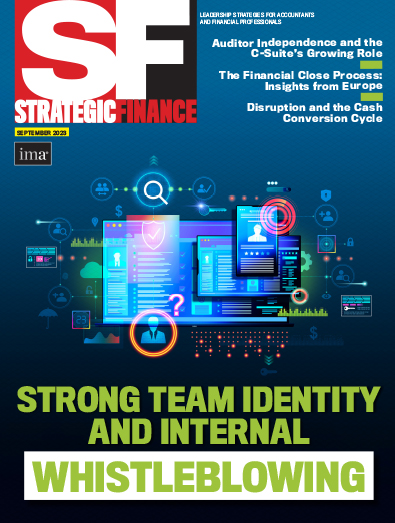Looking back on the lessons I’ve learned in the various jobs I’ve held, from accounts receivable supervisor, team leader/manager at Pitney Bowes, and accounting manager to my current role as research project manager and staff liaison to various IMA® (Institute of Management Accountants) committees, I wish I could’ve given my younger self advice when I was starting out in my career. For one, I’d say, “Don’t procrastinate!” Time seriously goes by in the blink of an eye. In addition, take calculated risks and don’t shy away from challenges that come your way because, at the end of the day, if you have perseverance, then you’ll overcome them eventually.
Before joining IMA, I worked at for-profit companies, and it’s worth considering both for-profit and nonprofit companies as career path options. For both for-profit and not-for-profit organizations, success is based on leadership. If you can find one person or multiple mentors who can help to shape your professional development and help you to progress in your career, then I would encourage you to take advantage of those mentorship opportunities. Organizations are really a reflection of their leadership, and the best leaders pay it forward by focusing on rank-and-file employees’ career development.
Learning on the Job and Growing Your Career
What I’ve learned the most from working as a team member and as a manager of a team is that people can get the work done if leaders communicate their expectations well, put individuals in a position to succeed, and trust their skills and expertise. That said, it isn’t about showing how much you know, but showing how much you care. People tend to work with and for you when you care about their well-being.
Some skills that many new employees need to learn on the job but that aren’t taught in classrooms typically are social skills and communication best practices based on differences in learning styles. Exposing students and early-career professionals to more hands-on training and real-life scenarios are effective approaches. While attending school, I learned that I am a hands-on learner rather than someone who leans on reading material for knowledge acquisition. I grasp a concept better when I understand it in the context of a real-life situation and how to apply it. To have the knowledge is great, but the application of knowledge is the key.
Students and early-career professionals also need to be prepared to face challenges over the course of their career and employ strategies and tactics to overcome them. Professionally, I’ve faced a lack of inclusion in the workplace. I’ve had to consistently prove myself to get into spaces where I can learn and grow. I continually make sure to ask questions.
At a previous position, I even talked with senior leadership and requested meeting with them one-on-one to ask how I can put myself in a position to grow further in my career. It’s true that not all were receptive to my approach or reacted in the way that I’d hoped, but I appreciated those who did. They spoke candidly about the challenges they faced and how they overcame those obstacles to find career success. Open communication is key. I never mind speaking up about what I want and how I can achieve my goals.
In my current role as a project manager in IMA’s research and policy department, there’s plenty that I’m looking forward to professionally. In particular, there are some subject-matter areas related to management accounting and finance that I feel are ripe for further research. The following topic areas continue to increase in importance: diversity, equity, and inclusion; sustainability; and talent retention. I’m hopeful for the future in part because I’m fascinated by what I’m working on, and the best career advice I can give is to find a job that allows you to do what you love and feel a sense of optimism for whatever’s next.

September 2023




